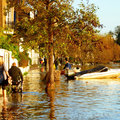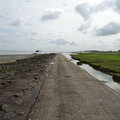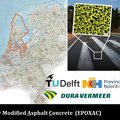Archive
31 May 2018
No increase in losses in Europe from floods in the past 150 years

Extreme hydrological events are generally predicted to become more frequent and damaging in Europe due to warming climate. Researchers from TU Delft and Rice University (Houston) have now shown that, correcting for economic and demographic changes, there has been no increase in financial losses and fatalities from floods in the last 150 years. They have reported on their findings in Nature Communications.
22 May 2018
Most wanted: wastewater

Technology such as MRI helps us to understand the processes that take place in biomass when we purify waste water with micro-organisms. We can use this knowledge to extract more energy and resources (and new pollution) from our own waste water. But we also need new knowledge to tackle problems in the rapidly expanding world cities, where waste water purification is often a relatively new concept. We can and must get much more out of our waste water. This is argued by Professor Merle de Kreuk, who will give her inaugural address at TU Delft on Wednesday, 23 May.
08 May 2018
‘Where there's a will, something goes away’

The Netherlands needs to opt for a coastal system that is as adaptive as possible, taking maximum advantage of the coast’s natural resilience and its ability to organise itself. This is according to ecologist, Prof. Peter Herman, who will give his inaugural address at TU Delft on Wednesday, 9 May.
30 April 2018
Grant for sustainable asphalt technologies

How to increase the durability and lifespan of pavement materials? Xueyan Liu, Panos Apostolidis, Prof. Scarpas and Prof. Erkens from the Engineering Structures department received a grant from the Dutch Province Noord Holland to research Epoxyasphalt technologies.
27 April 2018
Publication Nature Scientific Reports: Beaches worldwide are growing

We love holidays on the beach and about a quarter of the world's population live on coasts because of the favourable economic location. But until now we have had only a very vague picture of how coastal areas have evolved worldwide over the years. Scientists in Delft are changing this. Researchers from Deltares, Delft University of Technology and IHE have analysed changes in 50,000 beaches over a 35-year period. They present their findings today in Nature Scientific Reports.